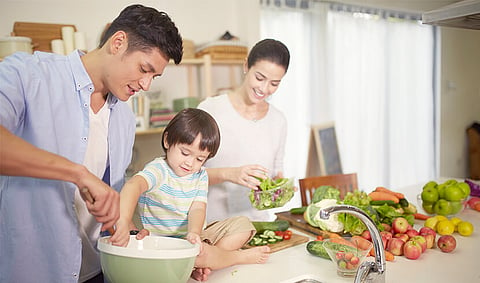
- Home
- Live Blog
- Breaking News
- Top Headlines
- Cities
- NE News
- Sentinel Media
- Sports
- Education
- Jobs

LITTLE THINGS ABOUT
LITTLE ONES
Dr. Gayatri Bezboruah
"Yes, yes, yes, they said they want me over next Sunday too", or "Mind your manners at the party, please, I don't want you to misbehave," or "Please be careful about how you talk to your seniors" or "Listen, I don't want to see you do this again, please" are part of our conversations with our children almost everyday. Not because they are always doing things the wrong way, but because they need us to softly guide them into growing up to be adults we will be proud of.
Is it really easy to guide our children to mind their manners? No, not really. It would not be wrong to say that perhaps the most difficult period of upbringing of our children is when we have to teach them good manners and behaviour. We need to be armed with a lot of patience and tolerance to make sure we don't end up losing our temper and making a mess out of it.
Though it is impossible to train toddlers, we need to slowly start telling our little ones what is good and what is bad when they start to grow up. It will not only make them responsible adults in future, but also ensure that we, as parents are successful in the good upbringing of the kids. Let's look at what we can do to help them behave in a way we want them to.
First things first: We need to be good role models. For that, it is so important to remember that our children will set us as their role models. Unless we make an effort to be at our best behaviour, we cannot and maybe should not expect them to be at their best behaviour. So, setting a good example for our children and portraying a behaviour that we would want them to follow is a good rule to follow.
If we want our children to talk politely, we need to do that ourselves and start by using words like 'thank you', 'sorry', etc. ourselves. When we do that, we are encouraging them to do that too. Taking care of what language we use is important, since children tend to imitate how we speak. Teaching them to talk to others with respect needs to be encouraged and emphasized. Asking them to call our friends by adding Mr. or Ms. or uncle or aunty in our mother tongue before their names is a good way to start.
Teaching them how to shake hands and smile and answer when asked something works wonders. Also, helping them learn how to behave when in public or at someone else's home helps with the appreciation that comes with it.
It is not possible to teach our children everything in one go. It is only as and when they mature that they are able to understand things the way they are. Teaching basic manners and training them when they are around 3 years old helps; then we need to move on to instilling etiquettes and politeness. We shouldn't expect our two year olds to stop chewing with their mouth open just because we say so!
If our children behave in a bad way, we need to remember not to ignore it. Take them to a corner and talk about it there and then. Address bad behaviour as soon as it is exhibited. If they break a rule, we need not reprimand but should address the issue in a firm manner. We need to remember to never ever reprimand or scold them in front of others. And also that we should not keep advising our children about good behaviour. If they do exhibit it, appreciate them and acknowledge the behaviour. This will encourage them to take us even more seriously and be at their best behaviour always.
Dr Gayatri Bezboruah is Professor of Paediatrics, Gauhati Medical College, Guwahati. She can be reached at drgbezboruah@gmail.com or melange.sentinel@rediffmail.com